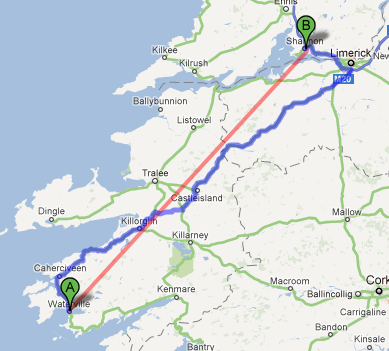Earlier this month I had the pleasure of speaking at a conference for one of our partners. My presentation – “So, you have a $500k sales forecast?” – was essentially a story about the impact that good sales process design, planning, automation and measurement can have on revenue achievement.
The company in the case study I used achieved a dramatic revenue improvement (194%) by working the four levers that impact sales velocity. Also, because they planned, measured, and automated everything along the way, the system they used automatically produced an uncommonly accurate sales forecast.
I’ve written before about the value of sales process and the problems with sales forecasts, but I’ve never written about the issue raised by one of the members of the audience at my session.
Commit / Upside / Pipeline: The ‘Commit Theory’ of sales forecasting is as old as the hills and about as useful as an astray on a motorbike. The theory goes that at the start of a quarter (or at some other arbitrary point within the quarter) the sales person ‘commits’ a certain deal to the sales forecast. He is guaranteeing that the deal is going to close in the quarter. In its worst manifestation, this commitment is an unbreakable contract between the sales person and his or her manager that this deal will close. The theory is that the resultant pressure is enough to ensure that the sales person will get the deal.
Now, I’m all for holding people accountable, but there is so much wrong with the Commit Theory approach that, unfettered, it is dangerous. It can be the enemy of good sales practice, alienate good sales people and damage customer relationships.
Some words I could use as synonyms for ‘commitment’ are: promise, pledge, oath, contract, pact, deal, decision, and resolution. Nowhere in here is there a reference to a plan, a process, or any measure of confidence in the ability of an individual to deliver on the commitment.
Making a commitment, without knowing how you can deliver on the commitment, is counterproductive. Expectations are misaligned and subsequent actions that are taken – based on the commitment – are built on a flawed foundation.
Here’s an analogy – and a true story.
I remember about a year ago driving in the southwest of Ireland. I was due to pick up a colleague at Shannon airport at 11am. I had committed that I would be there when the flight landed.
It was 9:00am when I set out on my journey. I had spent the weekend with friends in Waterville in Kerry beside one of the greatest golf courses in the world. Having not taken the route from Waterville to Shannon before, I decided I might need help from my GPS system. Imagine my horror when I learned that the expected journey time was 2 hours and 45 minutes. That had me arriving at the airport at 11:45am. I had made a commitment to be there at 11:00am. I was going to be a full 45 minutes late. I’m not averse to occasionally driving a little over the speed limit. But in this case I would have to do some pretty unnatural things to make up that 45 minutes. We are not talking multi-lane highway here. If I tried to deliver on my commitment I would likely end up stuck in a ditch or doing some real damage. The reality was – there was nothing I could really do about it.
The GPS system knew each step of the journey. It knew that to get to Shannon, I had to go to Cahirciveen, then take the beautiful (and winding) coast road to Killorglin before I drove to the market town of Castleisland, on to Limerick before completing the final stage to Shannon. You see, the GPS had the data. It knew how long each stage of the trip would take. It had a map, the sequence of twist and turns, and an approximate measure of the speed at which I should expect to progress through each stage.
All I had was a flight arriving at 11:00am and a commitment I had made.
Of course I should have planned better. I could have consulted my GPS the day before. Certainly, before I made the commitment, I should have had some basis for confidence that I could make it on time.
And so it is with sales forecasts. Opportunities close when the customer is ready – emotionally, intellectually, and commercially – to sign the deal. That only happens when you and your customer are aligned on the final destination, the journey to get there, and each of the checkpoints along the way.
A promise you can’t keep is worse than no promise. A promise with a plan to deliver has value.
That is why I have a problem with commitment.



![[Research Round-Up] The Latest From NetLine On B2B Content Consumption](https://customerthink.com/wp-content/uploads/email-g56aa02a47_1280-pixabay-email-marketing-218x150.png)
